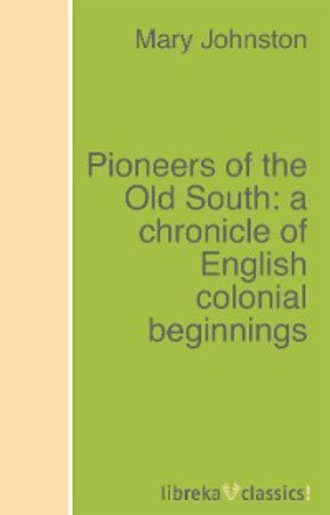
Полная версия
Pioneers of the Old South: a chronicle of English colonial beginnings
Certain of the men upon the Susan Constant, the Goodspeed, and the Discovery stand out clearly, etched against the sky.
Christopher Newport might be forty years old. He had been of Raleigh's captains and was chosen, a very young man, to bring to England from the Indies the captured great carrack, Madre de Dios, laden with fabulous treasure. In all, Newport was destined to make five voyages to Virginia, carrying supply and aid. After that, he would pass into the service of the East India Company, know India, Java, and the Persian Gulf; would be praised by that great company for sagacity, energy, and good care of his men. Ten years' time from this first Virginia voyage, and he would die upon his ship, the Hope, before Bantam in Java.
Bartholomew Gosnold, the captain of the Goodspeed, had sailed with thirty others, five years before, from Dartmouth in a bark named the Concord. He had not made the usual long sweep southward into tropic waters, there to turn and come northward, but had gone, arrow-straight, across the north Atlantic—one of the first English sailors to make the direct passage and save many a weary sea league. Gosnold and his men had seen Cape Ann and Cape Cod, and had built upon Cuttyhunk, among the Elizabeth Islands, a little fort thatched with rushes. Then, hardships thronging and quarrels developing, they had filled their ship with sassafras and cedar, and sailed for home over the summer Atlantic, reaching England, with "not one cake of bread" left but only "a little vinegar." Gosnold, guiding the Goodspeed, is now making his last voyage, for he is to die in Virginia within the year.
George Percy, brother of the Earl of Northumberland, has fought bravely in the Low Countries. He is to stay five years in Virginia, to serve there a short time as Governor, and then, returning to England, is to write "A Trewe Relacyion", in which he begs to differ from John Smith's "Generall Historie." Finally, he goes again to the wars in the Low Countries, serves with distinction, and dies, unmarried, at the age of fifty-two. His portrait shows a long, rather melancholy face, set between a lace collar and thick, dark hair.
A Queen and a Cardinal—Mary Tudor and Reginald Pole—had stood sponsors for the father of Edward-Maria Wingfield. This man, of an ancient and honorable stock, was older than most of his fellow adventurers to Virginia. He had fought in Ireland, fought in the Low Countries, had been a prisoner of war. Now he was presently to become "the first president of the first council in the first English colony in America." And then, miseries increasing and wretched men being quick to impute evil, it was to be held with other assertions against him that he was of a Catholic family, that he traveled without a Bible, and probably meant to betray Virginia to the Spaniard. He was to be deposed from his presidency, return to England, and there write a vindication. "I never turned my face from daunger, or hidd my handes from labour; so watchful a sentinel stood myself to myself." With John Smith he had a bitter quarrel.

